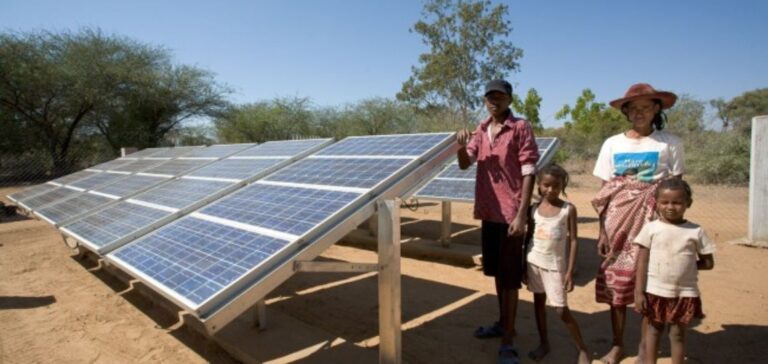The European Investment Bank (EIB) today announced a €10 million loan to WeLight Madagascar. To develop and build solar mini-grids in currently isolated villages.
The European Union supports rural electrification in Madagascar with funding of 19 million euros.
At a signing ceremony, the European Union’s Ambassador to Madagascar and the country’s Minister of Energy and Hydrocarbons attended a visit by the EIB Vice-President responsible for financing private sector projects in Madagascar. The European Union has stressed the importance it attaches to this program. The new mini-grids will give people in unconnected rural villages access to clean, affordable energy.
In addition to private residences and businesses, the project will benefit schools, health centers and public spaces. This will boost the local economy and improve health, safety and education. Including a solar power plant, an energy storage system and a distribution line and meter for each customer. A mini-grid can supply electricity 24/7. The 120 additional villages in 17 regions have been identified. This was done in collaboration with Madagascar’s Ministry of Energy and the Agency for the Development of Rural Electrification (ADER).
Ambroise Fayolle, EIB Vice-President, said: “We are proud to finance this project, which will improve the standard of living of hundreds of thousands of people in rural Madagascar, and to see the progress that has already been made. The EIB, Europe’s climate bank, is committed to promoting clean, sustainable energy that will help businesses and the local economy, as well as families and the community as a whole.”
Romain de Villeneuve, Managing Director of WeLight Madagascar, said, “Since its creation in 2018, WeLight has made extraordinary progress thanks to its many trusted partners: original shareholders Axian, Norfund and Sagemcom and, more recently, the main lenders who have disbursed 19 million euros for a project involving 120 additional villages in Madagascar, namely the European Investment Bank, Triodos Investment Management and EDFI ElectriFI. The adventure of rural electrification has just begun!
EU Ambassador to Madagascar, Isabelle Delattre Burger, said: “I am delighted that the European Union is supporting both private operators, such as WeLight, and the Malagasy state in its efforts to increase access to electricity, including in regions where opportunities and income levels remain low. Together with the EU Member States, the European Investment Bank is a key partner in the implementation of the Global Gateway strategy, which promotes investment in quality infrastructure in line with the highest environmental and social standards and the values and standards of the European Union”.
The EIB loan, announced in January, is part of a joint investment of 19 million euros with Triodos Investment Management and EDFI ElectriFI. The electrification financing initiative is funded by the EU.






















